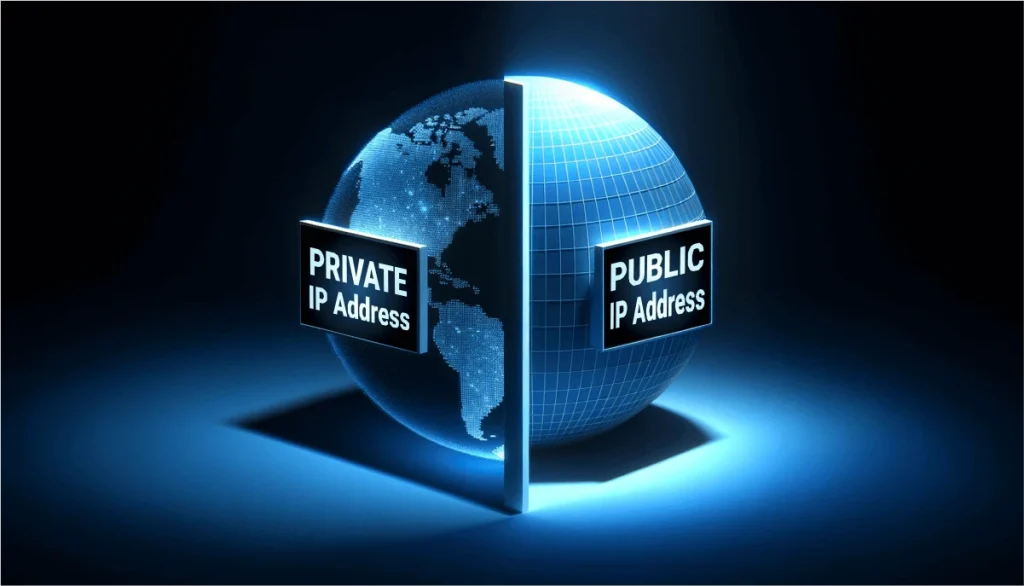A private IP address has a local scope within your network to connect devices securely. However, a public IP address has a global scope.
Public IPs work outside your local network to connect to the Internet and communicate with other public addresses worldwide. You can mask your public IP by using a VPN or a proxy.
1. Access to the Internet
The public IP address is a string of numbers assigned to your network router by the ISP that connects you to the internet. Public IP addresses can be used to track devices online, so they’re visible to advertisers, governments, and cybercriminals.
A private IP address is a unique numeric code that’s only used within the device’s local network. The device’s network router assigns it to each network device and ensures that the devices can communicate securely within the LAN.
Unlike a private IP, the public IP address is visible to anyone who searches for information on the Internet. This information can be used by governments, advertisers, and cybercriminals to track your activity online and expose vulnerabilities. Your public IP can also be used to trace your general geographical location. Fortunately, you can safeguard your privacy by using a VPN to mask your private IP. This way, you can enjoy the benefits of the Internet without compromising your security.
2. Security
Unlike public IP addresses, private ones can only be accessed from devices that belong to the same local network. This boosts the security of your online activities by ensuring that no one outside your network can establish a connection to your devices. It’s similar to how your physical address ensures that your mail reaches you.
Network routers use private IP addresses to communicate with each other, and these are also used for directing internet traffic internally. The routers have default private IP addresses that are assigned by the manufacturer of the device.
Public IP addresses, on the other hand, work across a wide area network (WAN). This is why they can be accessed from devices connected to the public internet, including other computers and mobile phones. Public IP addresses are susceptible to surveillance and attacks from cybercriminals, so they require additional security measures than private IPs. They can also be traced to your physical location.
3. Privacy
A public IP address is one that can be directly accessed over the Internet. These are assigned to network routers by ISPs. Your devices also have private IP addresses, which remain hidden when you connect to the Internet via a router’s public IP address. It is similar to using a P.O. box for snail mail rather than giving out your actual home address.
A device’s private IP address is unique to its local network. However, it is not visible on the Internet because the connection to the Internet must go through NAT (Network Address Translation replaces the private IP with a public IP).
Private IP addresses do not pose any serious cybersecurity risks because they are not unique from an attacker’s perspective and they are protected by NAT. Nevertheless, public IPs do require specific privacy measures to keep them secure. This includes the use of strong passwords and implementing an appropriate VPN service. This will help you avoid being hacked by cybercriminals who can easily gain access to your data and monitor your activities.
4. Routing
Just like your home address helps others find your house in the real world, your router’s public IP addresses help internet devices and websites locate you on the network. It’s what makes it possible for your laptop, smartphone, or smart home device to communicate with the web.
However, having a public IP address isn’t all good. For instance, it exposes you to online surveillance and tracking by ISPs, cybercriminals, and more.
Thankfully, private IP addresses are what help you avoid these risks. Each device on a private network has a unique internal IP that’s only visible to the devices within that same local network. Using Network Address Translation (NAT), routers switch between the public and private IP addresses to ensure that all traffic is routed correctly. This also eliminates the need for extra IPv4 addresses, which are running out as the internet continues to grow at an exponential rate. For more info, read How to Get a Private IP Address for Free.






